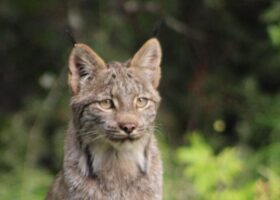
Proposed Rule Threatens to Narrow Endangered Species Protections
For more than 50 years, the Endangered Species Act has been considered “our nation’s most effective law to protect species from extinction.” However, a proposed rule throws the future of this law’s protections into question.
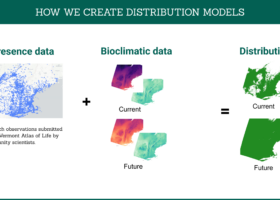
How We’re Taking Species Mapping to the Next Level
Using Species Distribution Models based on observations submitted to the Vermont Atlas of Life by community scientists, in combination with environmental data collected by satellites, can help land stewards create habitat conservation and restoration plans.
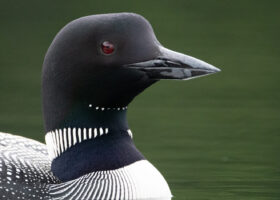
How Avian Influenza Might Be Affecting Loons
The iconic Common Loons may not be as vulnerable to bird flu as some species, but cases are emerging. Learn how researchers are monitoring this evolving threat and how you can help protect loons.
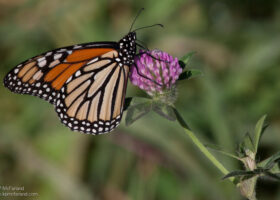
Vermont State Butterfly Proposed for Threatened Species Listing
For many Vermonters, Monarchs are a much-anticipated sign that summer is truly here. However, experts have long been growing concerned over declines in migratory Monarch populations. In December 2024, the U.S. Fish & Wildlife Service officially proposed to list the species as Threatened.
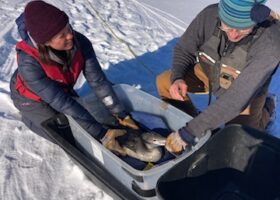
‘Tis the Season for Loon Rescues—On Ice!
In December, a loon chick was spotted in the open water of Berlin Pond, surrounded by ice. It had likely failed to migrate earlier due to an abundance of food on the 200 acre pond, and now it was trapped.
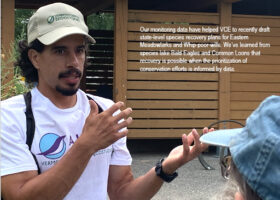
VCE’s Champions of Long-term Monitoring Count Up the Benefits to Conservation
How does monitoring contribute to conservation? We asked a few of VCE’s leading proponents of regular surveys, and they explained how long-term datasets contribute to every stage of the conservation process.
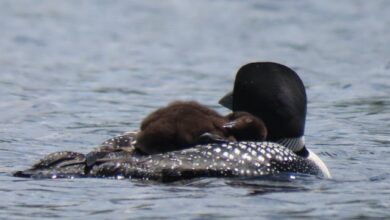
2024 Loon Season Summary
Well, folks, it’s that time of year. Lakes are freezing over, and the season of loon rescues, raft building, and watchful monitoring has drawn to a close. Here’s a recap of what our team of biologists and more than 350 dedicated volunteers found this year.
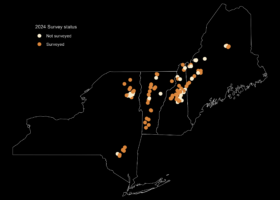
State of the Mountain Birds Northeast 2024
The State of the Mountain Birds, Northeast 2024 report has landed with a thud on our proverbial desks.
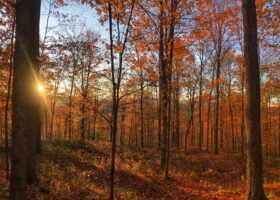
Field Guide to October 2024
The month of October reminds us of the cyclical nature of life. Like spring, autumn is a season of change. The forested hills fade from summer emerald to a watercolor painting of red and gold and brown. Here’s your field guide to some moments that you might not otherwise notice during these few precious weeks that feature colored hills beneath a deep blue sky.
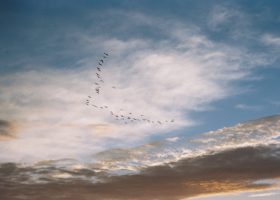
Field Guide to September 2024
It can happen almost anywhere. On a cool, foggy morning, for example, when fall warblers drop from their nocturnal, migratory flights into your backyard, and clusters of Common Green Darners congregate on a nearby riverbank. Or along a mudflat some afternoon when you notice a Spotted Sandpiper teetering and then darting after prey. Or on some wooded trail when you spot the first ruby red leaves among late-summer’s faded green. Here is your field guide to life slowing down and on the move in September.
